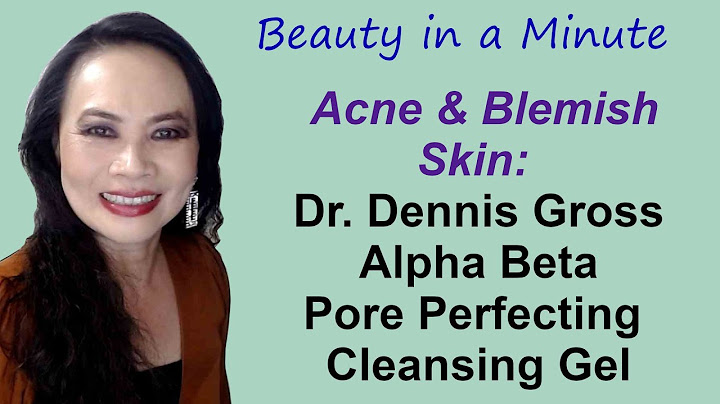tldr; i did dr. amen's 30 day happiness challenge, and this is what happened days 1-15. I realized last year after everything shut down how happy I was. My lil introverted self was. SO. excited. I am no longer working at a job I hate and I'm loving
being home: working on home improvement projects, I started this blog, I focused on my side business (marketing, advertising, branding if you're interested😏), spent a lot of time outside, etc. I am still just as content being home, but my extroverted self is dying to come out and play. Oddly enough, I haven't had the kind of depressive episodes I usually have, and it's been interesting... One thing about me is that I'm obsessed with
documentaries, and have always been interested in the way peoples' brains work (catch me watching a murder doc anytime). I first learned about Dr. Amen & Amen Clinics a couple months ago when he was going over Analynne McCord's brain scans and talking about how they can work together to heal her brain from depression and trauma. Here's the follow-up to that video. YouTube recommended I learn about Dr. Amen's 30 Day Happiness Challenge. I was shocked to find out it's actually free?! Here's that video: I took notes every day and then putting them in blogs. This was originally gonna be a way of keeping myself accountable, but as time went on it's
changed into a way of helping spread the knowledge that just the quizzes/tests alone can provide. I can't tell you the amount of times I've been actually shocked at my results, because they make so much sense with my life. My actual notes halfway through the challenge amount to about 30 pages, so I've hyper-condensed the stuff I found most important so I can include them here :) (AKA I'm a psycho who embodies "Show me you're excited about something without telling me you're excited about
something") Anyway the links to each quiz/test will be linked throughout and also again at the bottom so they're all in one spot. Here's to part one of two! Happy learning! Days 1-15:The 7 Neuroscience Secrets, 4 Circles of Happiness, Brain Types, "BRIGHT MINDS", and Knowing Your Purpose. Societally, we’re the unhappiest we’ve been in 50 years, and that is probably still true minus a global pandemic - Depression tripled in 2020. Listen, when your brain works right, you work right. Through a study Amen Clinics did of 500 patients, they found that if you have low blood flow in the front part of your brain, you’re much more likely to be unhappy. You literally need to be happy to be healthy. Knowing what gives your life meaning and what your purpose is in life is critical to your happiness. People who understand this part about themselves are more likely to be satisfied, have better mental health, personal growth, self-acceptance, longevity AND they sleep better, so we got pretty into that stuff too. Here’s some of the important neurochemicals of happiness: dopamine, serotonin, oxytocin & endorphins, GABA, and cortisol. There are a series of quizzes to find out things about yourself that you never would have thought of before. Like your Happiness Score - Mine was 3.86. This one is good to compare with Day 30 to see if it changed! There are 16 Brain Types, and 6-16 are combinations of 1-5: I’m Brain Type 11(persistent). I also took the Adverse Childhood Experiences (ACE) test. It’s scored 0-10, and if you score 4 or more you have a 12-fold increased risk of suicide, and you’re more likely to get 7 of the 10 most common causes of death... crazy shit. Mine was 3!! (“The patient is at intermediate risk for toxic stress.”) Finally, I took a Memory Rescue quiz to help determine if your memory is at risk. My score was “Low early warning signs, but high risk factor” because Dementia/Alzheimer’s runs in my family. 7 NEUROSCIENCE SECRETS TO HAPPINESS:Secret 1: Target happiness strategies to your unique Brain Type. Question 1: Am I focused on what makes me uniquely happy each day? Habit 1: Choose one thing each day that makes your specific Brain Type happy. Secret 2: Optimize the physical functioning of your brain. Question 2: Is this good for my brain, or bad for it? Habit 2: Choose at least 1 happy BRIGHT MINDS brain habit from the list. (*We learn BRIGHT MINDS later on.) Secret 3: Your brain needs targeted nutrients every day. Question 3: Am I nourishing my unique brain each day? Habit 3: Take basic supplements and those targeted to your Brain Type. Secret 4: Choose foods that elevate happiness and avoid ones that steal it. Question 4: Do I choose foods that I love that love me back? Habit 4: Increase fruits and vegetable intake. Choose 3 of the Happy Foods. Secret 5: Master your mind and gain distance from the noise in your head. Question 5. What went well today? Habit 5: Question your negative or self-defeating thoughts. Look for micro-moments of happiness. Secret 6: Notice what you like about others more than what you don’t (within acceptable boundaries). Question 6: Am I reinforcing the behaviors I like or dislike in others today? Habit 6: Write down 3 things you noticed that you like about someone in your life. Secret 7: Live each day based on defined values/purpose/goals from 4 Circles. Question 7. Does my behavior today fit the goals I have for my life? Habit 7: Write down 1 decision you will make today to help reach your goals. THE 4 CIRCLES OF HAPPINESSBiological Circle: How your physical body and brain function (exercise targeted to your brain type, physical affection, massage, 7 hours of sleep). Psychological Circle: Developmental issues and how you think (“today is gonna be a good day”, note distressing thoughts, focus on what you like, watch a comedy, write down 5 happiest life experiences). Social Circle: Social support, your current life situation, and societal influences (call a friend, eat dinner as family, send appreciation text to someone, limit screen time). Spiritual Circle: Your connection to God (or what/whoever you believe in), the planet, past and future generations, and your deepest sense of meaning and purpose (pray, meditate, volunteer, be a mentor to someone, random act of kindness). 5 PRIMARY BRAIN TYPESBalanced: A healthy brain. Focused, positive, emotionally stable. Enjoys healthy relationships, meaningful work, being on time and having fun. Hates chaos, missing appointments, being around undependable or negative people. Spontaneous: Low blood flow in frontal lobes of brain (sleepier brain). Spontaneous, curious, short attention span. Enjoys trying new things, creative projects, moving to new places. Hates boredom, deadlines, waiting in line. Persistent (mine!): The frontal lobes work too hard (too busy). Strong-willed, routine-oriented, easily ‘stuck’ on thoughts. Enjoys being in charge, big picture, making own decisions. Hates failure, people who don’t do what they said they would, being kept waiting. Sensitive: The brain’s limbic system works too hard. Sensitive, prone to pessimism (negative thinking), prone to depression. Enjoys alone time during the day, a good night’s sleep, expressing their emotions. Hates negative thoughts, being surrounded by bright lights, going to bed late. Cautious: The brain’s anxiety centers work too hard. Prepared, motivated, anxious. Enjoys being in calm environments, pro/con lists before big decisions, taking vacations close to home. Hates having too much to do, loud sounds and bright lights, reading about disasters. BRIGHT MINDSis a mnemonic (memory device) to help us remember what’s good for our brains.
HOW TO ANSWER: “What’s my purpose in life?”
I truly cannot express how interesting this kind of stuff is to me, and the fact that I get to learn about this stuff and actually apply it to myself (AND THAT IT'S FREE?) is the best thing... This very challenge, as I'm writing this actually, has inspired me to make a Self Help section of my blogs where I post about this and the Game of Desire stuff because this shit will change your life. I'm a whole ass nerd about this now so please let me know your results (if you're comfy sharing!) so we can discuss! One of my friends did some of these quizzes too and we are basically twins. C R A Z I N E S S. Anyway, love you the most... pls wake up and choose optimism 🥰 xx,  Happiness Score https://www.amenuniversity.com/oxford Brain Type https://brainhealthassessment.com/assessment ACE test https://www.npr.org/sections/health-shots/2015/03/02/387007941/take-the-ace-quiz-and-learn-what-it-does-and-doesnt-mean Memory Rescue quiz https://memoryrescue.com/assessment?utm_source=30dhc-au&utm_medium=link&utm_campaign=30DHC&utm_term=day3&utm_content=bha What is the 30 day happiness challenge?30 Days of Happiness Challenge
Our goal is that by creating little moments of happiness we can boost our mood, combat anxiety and depression, and live with less stress. You can bounce around the calendar until every task is done, or work on each one in the order that they are presented.
What is the happiness challenge?The Happiness Challenge aims to show that happiness is a lifestyle. The Challenge is a collection of eight habits that research shows make most people happier, including sleep, altruism, good eats, and the like. The challenge is simply to try each habit for one week. Chances are, it'll make you feel awesome.
How do Amen take care of your brain?Here are the first 6 prescriptions:. LOVE YOUR BRAIN. Most people never think about their brain for the simple reason that they can't see inside their heads. ... . INCREASE THE BRAIN'S RESERVE. ... . PROTECT YOUR BRAIN. ... . STOP POISONING YOUR BRAIN. ... . PROTECT YOUR MEMORY. ... . GOOD SLEEP IS ESSENTIAL TO THE HEALTH OF YOUR BRAIN.. |

Related Posts
Advertising
LATEST NEWS
Advertising
Populer
Advertising
About

Copyright © 2024 moicapnhap Inc.


















